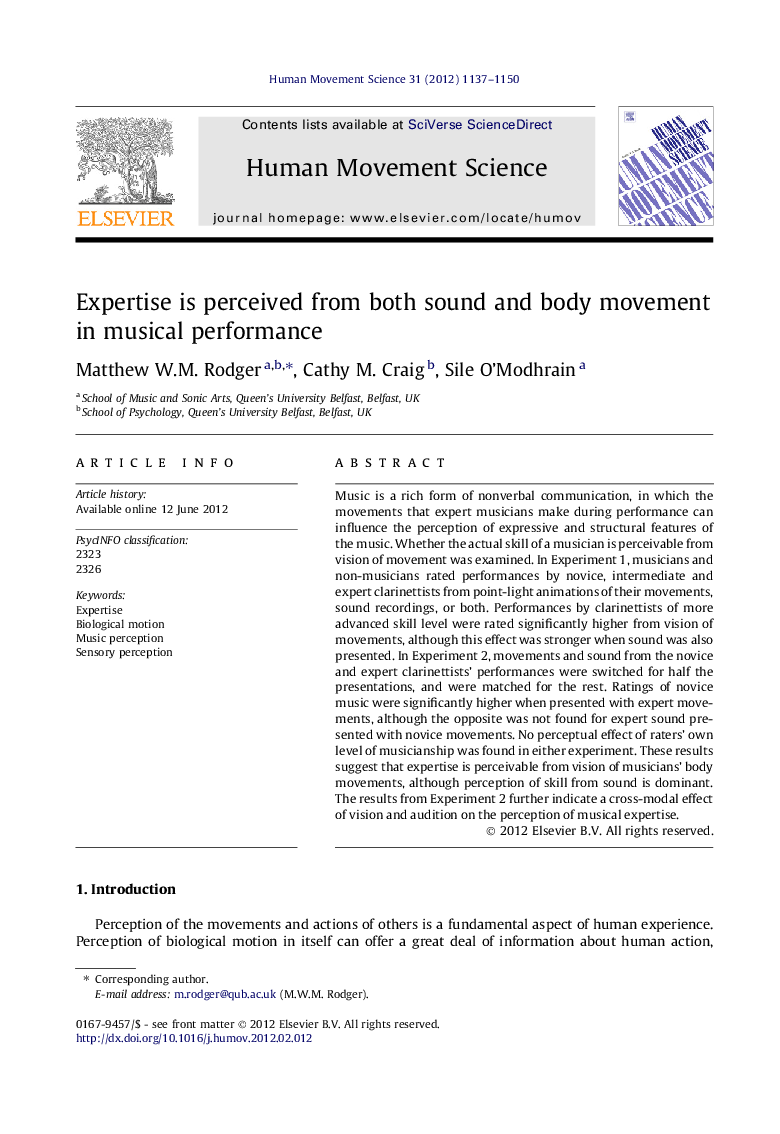| Article ID | Journal | Published Year | Pages | File Type |
|---|---|---|---|---|
| 928375 | Human Movement Science | 2012 | 14 Pages |
Music is a rich form of nonverbal communication, in which the movements that expert musicians make during performance can influence the perception of expressive and structural features of the music. Whether the actual skill of a musician is perceivable from vision of movement was examined. In Experiment 1, musicians and non-musicians rated performances by novice, intermediate and expert clarinettists from point-light animations of their movements, sound recordings, or both. Performances by clarinettists of more advanced skill level were rated significantly higher from vision of movements, although this effect was stronger when sound was also presented. In Experiment 2, movements and sound from the novice and expert clarinettists’ performances were switched for half the presentations, and were matched for the rest. Ratings of novice music were significantly higher when presented with expert movements, although the opposite was not found for expert sound presented with novice movements. No perceptual effect of raters’ own level of musicianship was found in either experiment. These results suggest that expertise is perceivable from vision of musicians’ body movements, although perception of skill from sound is dominant. The results from Experiment 2 further indicate a cross-modal effect of vision and audition on the perception of musical expertise.
► Visual and auditory perception of skill in music performance were explored. ► Differences in skill level can be perceived from vision of body movement alone. ► Cross-modal interaction of expert movement with novice sound affected perceived skill. ► Skill level of the perceiver did not mediate perception of musical skill.
